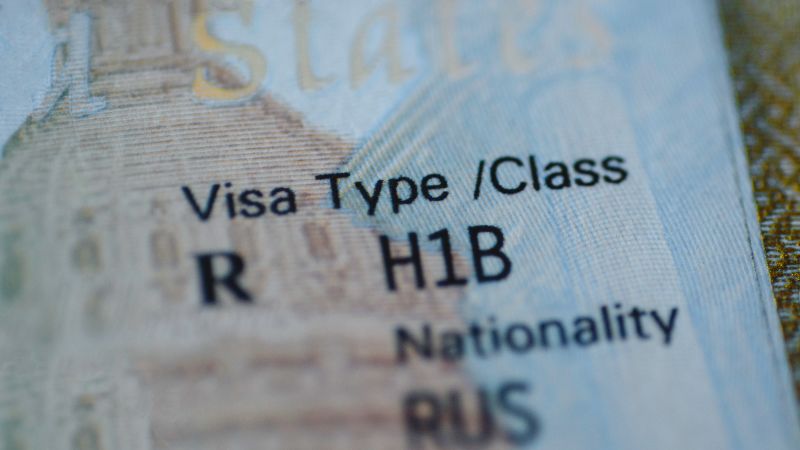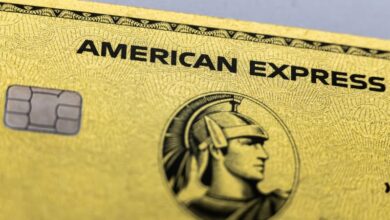H-1b visa: Rural and underserved hospitals hit hard by $100,000 fee

When the Trump administration announced last month that every new H-1B visa would incur $100,000 feethe objective seemed simple: to encourage companies, particularly technological ones, which rely on strongly on the agenda, to start hiring American workers and stop driving down American wages.
But the health care industry fears that rising H-1B visa prices could threaten the ability of hospitals in rural and underserved areas to bring in foreign workers and fill the shortage of specialists needed to serve the community.
“There’s no way we’re going to pay $100,000,” Carolynn Lundry, residency program coordinator at St. Luke’s Hospital in the St. Louis suburb of Chesterfield, Missouri.
“We’re pooling international graduates, and if we eliminate H-1Bs, it’s going to narrow our pool of choices,” said Lundry, who selects 16 internal medicine residents a year for St. Luke’s.
More than 64% of international medical graduates practiced in medically underserved areas or health professional shortage areas, with more than 45% practicing in rural areas, according to a 2021 study. published study by the National Institutes of Health.
And the United States needs 13,075 more doctors just to fill shortages, a study finds. Health Resources and Services Administration (HRSA) 2024 Report. HRSA projects that by 2037, the United States will be short 87,150 full-time equivalent (FTE) primary care physicians.
The White House said the new fees for H-1B visa applicants were part of President Donald Trump’s promise to put American workers first.
“President Trump promised to put American workers first, and this common-sense action does just that by discouraging businesses from spamming the system and driving down wages,” White House spokesperson Taylor Rogers told CNN in a statement. “It also provides certainty to American businesses who are serious about bringing highly skilled workers to our great country but who have been trampled by abuses of the system.”
Some groups opposed the $100,000 fee, which previously was about $3,000. Last week, the American Chamber of Commerce became the latest group to sue the Trump administration above costs.
“The new $100,000 visa fee will make it prohibitive for U.S. employers, particularly start-ups and small and medium-sized businesses, to use the H-1B program, which was created by Congress expressly to ensure that U.S. businesses of all sizes can access the international talent they need to grow their businesses here in the United States,” said Neil Bradley, executive vice president and chief policy officer. of the chamber, which is one of the largest pro-business lobbying groups in the United States. nation.
The American Medical Association and more than 50 other health care-related companies have urged the Trump administration to declare international medical graduates exempt from these high fees.
“States with a higher percentage of H-1B doctors are often those with lower doctor density,” they wrote in a letter to Kristi Noem, secretary of the Department of Homeland Security. “America’s healthcare workforce relies on doctors from other countries to provide accessible, high-quality care to patients. »
In its latest guidance, U.S. Citizenship and Immigration Services said the $100,000 fee applies only to new H-1B applicants living abroad — not to existing H-1B visa holders who need to renew their visas, and not to those who hold other visa statuses and need to change their status to H-1B.
For small, rural hospitals like St. Luke’s, the doctor shortage, along with new rates, can be devastating to their staff. St. Luke’s already struggles to attract U.S. graduates because it is not a residence hall, which is often more attractive to U.S. graduates who want to compete for certain hospital positions after completing their residency.
“We need so many doctors in this country, and there simply aren’t enough American medical graduates to fill all of these positions. We have to draw from elsewhere,” Lundry said.
These foreign applicants allow Lundry to choose residents who have prior work experience and “astronomical” scores on U.S. qualifying exams.
“These people can be stars,” she said.
Dr. Chuck Thigpen, clinical and strategic director at ATI Physical Therapy, wonders whether he can maintain the job offers he made to international students graduating from U.S. universities in January.
ATI has 450 open clinical positions across the United States, and 49 employees on the H-1B visa and 97 employees on the H-4 visa, which is a nonimmigrant visa for spouses and unmarried children under the age of 21 of H-1B visa holders.
“There are way more jobs than we even have candidates applying for those jobs, so there are not enough qualified, licensed therapists to meet our current workforce needs,” Thigpen said.
With these shortages and federal cuts At healthcare industryexorbitant fees on hiring immigrants “just kind of add up,” Thigpen said.
Thigpen says the real loss will be borne by Americans who actually need help.
“We are already under strong margin pressure to keep clinics open and ensure their sustainability,” he said. “So if I now add another $100,000 per hire, I can’t do it. I just have to close clinics.”

H-1B fees have cast doubt on the future of international graduates.
Mykola, who fled the war in Ukraine in 2024, was a practicing doctor in kyiv. (He asked that his full name not be included for fear of backlash.)
He arrived in the United States by United for Ukraine (U4U)a U.S. government humanitarian parole program that allowed private U.S. citizens to sponsor and help support Ukrainians who left because of the war. Mykola decided to prepare for the exams so that she could work as a doctor here.
As a parolee, he is not eligible for the change of status process, according to Rakhel Milstein, an immigration attorney and founder and CEO of the Milstein Law Group. “He has to make a new H-1B petition, informing the consulate. And these are exactly the people who are affected,” Milstein said.
Mykola spent thousands of dollars on qualifying exams, including textbooks, degree verification and application fees.
“I mainly apply to programs in underserved areas,” he told CNN, adding that he had seen how health care could be accessible in Ukraine and would like to help make it more accessible in the United States.
“I’m willing to help these underserved areas,” he said. “I know for me it’s not really a problem serving there.”
He is now waiting for a residency program to accept his application and hopes to be sponsored for an H-1B visa so he can leave his parole status behind. But with the new $100,000 fee, he wonders if those sponsorship deals will come.
ـــــــــــــــــــــــــــــــــــــــــــــــــــــــــــــــــــــــــــــــــــــــــــــــــــــــــــــــــ
Soon, there will be articles covering various topics, such as:
Insurance, Loans, Mortgage, Attorney, Credit, Lawyer, Donate, Degree, Hosting, Claim, Conference Call, Trading, Software, Recovery, Transfer, Gas/Electicity, Classes, Rehab, Treatment, Cord Blood, Best mesothelioma lawyer, Truck accident lawyer, Buy life insurance online, Business VoIP provider, EMR software for clinics, Structured settlement companies, motorcycle injury lawyer, motorcycle injury attorney, spinal cord injury attorney, birth injury attorney, auto accident injury attorney, spinal cord injury lawyer, car injury attorney, motorcycle accident injury attorney, catastrophic injury lawyer, birth injury lawyer, workplace injury attorney, motorcycle injury attorneys, head injury lawyer, personal injury attorneys, traumatic brain injury attorney, train accident lawyer, brain injury attorney, auto injury attorney, serious injury attorney, personal injury lawyer, truck injury lawyer, injury attorneys, back injury lawyer, injury lawyer near me, injury lawyer,
If you would like to see these articles, please write so in the comments.




